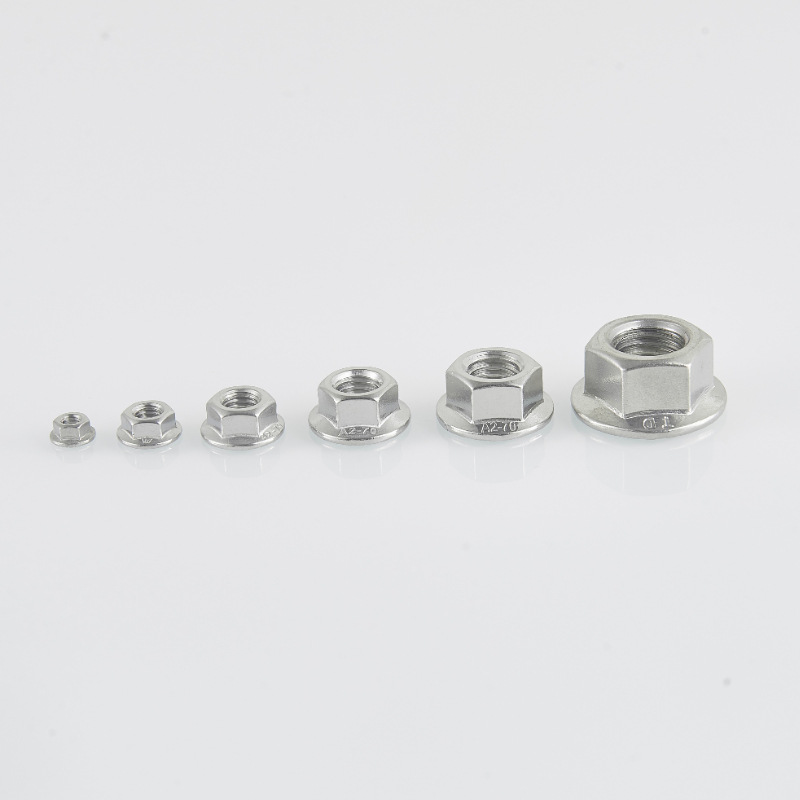

Exploring the Benefits and Applications of M6 Lock Washers in Various Industries
نومبر . 08, 2024 23:38 Back to list
Exploring the Benefits and Applications of M6 Lock Washers in Various Industries
The Importance of Lock Washers in Mechanical Applications A Focus on M6 Lock Washers
When it comes to mechanical assemblies, ensuring the security and stability of fasteners is paramount. Among the various components used to enhance the reliability of bolted joints, lock washers play a vital role. This article will focus on M6 lock washers, exploring their design, applications, and the benefits they bring to mechanical systems.
Understanding Lock Washers
Lock washers are specialized washers designed to prevent loosening of nuts and bolts due to vibration or dynamic loading. They are available in various designs, including split,TOOTHED, bent, and wave configurations. Each design serves a unique purpose, but the primary function remains the same — to maintain the tension in a fastened joint.
M6 Lock Washers Specifications and Uses
The M6 designation indicates that the lock washer is suitable for use with M6 screws or bolts, which have a nominal diameter of 6 mm. The specifications for an M6 lock washer usually include its outer diameter, inner diameter, and thickness, all of which contribute to its performance in specific applications.
M6 lock washers are commonly used in various industries, including automotive, aerospace, and manufacturing. They are ideal for securing components in machinery, assemblies in vehicles, and structures that experience vibration. By providing added friction, M6 lock washers help to ensure that bolts remain tight and do not back out over time.
Types of M6 Lock Washers
1. Split Lock Washers These are perhaps the most common type of lock washers. They have a split or gap that creates a spring effect. When the nut or screw is tightened, the washer compresses against the surface and the split edges dig into the surface. This design provides a locking action that is effective in vibrational environments.
2. Toothed Lock Washers These washers feature a series of teeth that grip the surface of the assembly. Toothed lock washers are particularly effective in preventing the loosening of fasteners in high-vibration applications, making them suitable for heavy machinery and automotive applications.
lock washer m6

3. Wave Washers While not as commonly used as the other types, wave washers can also serve as locking devices. Their wavy design allows them to provide a spring effect, which can help absorb shock and maintain pressure on the fastened joint.
4. Bent Lock Washers These are less common but can be useful in specific scenarios. Bent lock washers have one side bent upwards, which increases friction and helps to prevent loosening.
Advantages of Using M6 Lock Washers
The incorporation of M6 lock washers offers several advantages that contribute to system efficiency and longevity
- Vibration Resistance One of the most significant benefits of using lock washers is their ability to resist loosening due to vibrations. In applications subjected to constant movement, the chances of a bolt or nut loosening without the aid of a lock washer are significantly increased.
- Cost-Effectiveness Lock washers are inexpensive and easy to install, adding minimal cost to an assembly while providing substantial benefits in terms of reliability and safety.
- Reusability Many types of lock washers can be reused in multiple assemblies, making them a sustainable choice for manufacturers and engineers looking to minimize waste.
- Enhanced Load Distribution Lock washers can help distribute the load more evenly across the fastened joint, reducing the risk of localized stress and potential weakening of components.
Conclusion
In conclusion, M6 lock washers are an integral part of mechanical assemblies, offering crucial benefits that enhance safety and durability in various applications. Their simple yet effective design allows them to play a significant role in preventing the loosening of fasteners in high-vibration environments. As industries continue to evolve, the importance of choosing the right hardware, such as M6 lock washers, to secure mechanical connections cannot be overstated. By understanding their features and applications, engineers and manufacturers can ensure the reliability and longevity of their products.
Latest news
-
Hot Dip Galvanized Bolts-About LongZe|High Strength, Corrosion Resistance
NewsJul.30,2025
-
High-Strength Hot Dip Galvanized Bolts - Hebei Longze | Corrosion Resistance, Customization
NewsJul.30,2025
-
Hot Dip Galvanized Bolts-Hebei Longze|Corrosion Resistance&High Strength
NewsJul.30,2025
-
High-Strength Hot-Dip Galvanized Bolts-Hebei Longze|Corrosion Resistance&High Strength
NewsJul.30,2025
-
Hot Dip Galvanized Bolts-Hebei Longze|Corrosion Resistance&High Strength
NewsJul.30,2025
-
Hot Dip Galvanized Bolts - Hebei Longze | Corrosion Resistance, High Strength
NewsJul.30,2025

